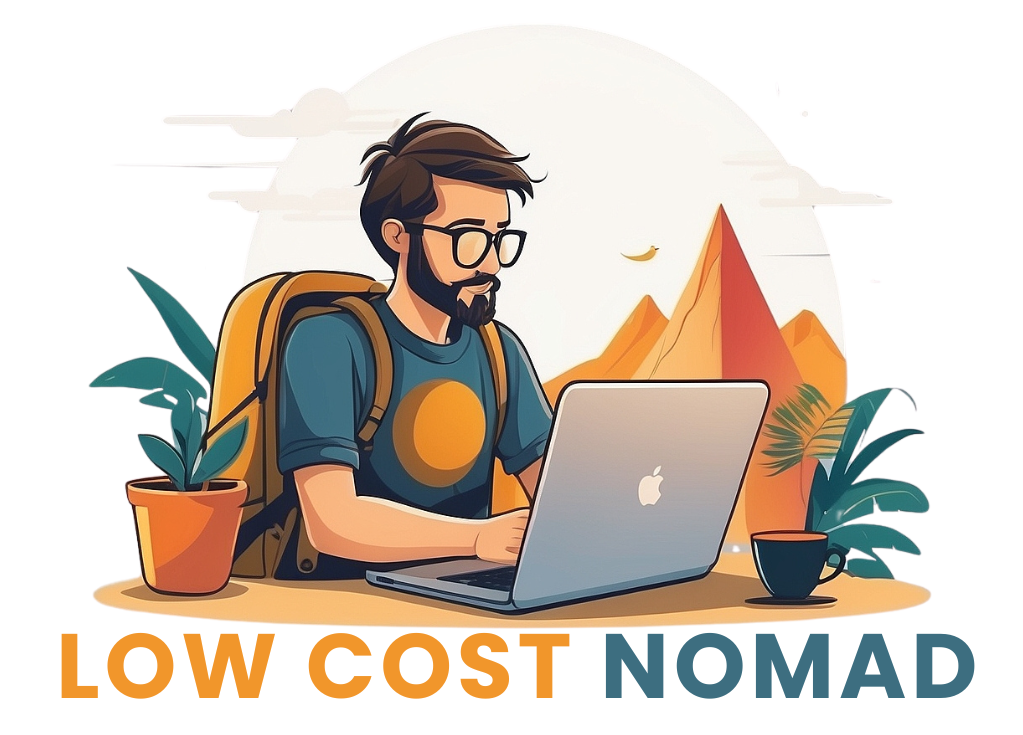Germany Digital Nomad Visa: Your Guide to Living and Working Remotely in Germany
Imagine working from a charming cafe in Berlin, a quiet village in Bavaria, or a modern co-working space in Hamburg. For many remote workers and freelancers from around the world, this isn’t just a dream – it’s a real possibility thanks to the Germany digital nomad visa. This special visa allows people who work for themselves and can do their job from anywhere to live legally in Germany for an extended period.
The idea of being a “digital nomad” means you use technology to work remotely, without being tied to a specific office location. Germany, with its strong economy, rich culture, and central location in Europe, has become an attractive destination for digital nomads. Recognizing this trend, Germany created a visa path specifically designed for these independent professionals. This article will explain everything you need to know about the Germany digital nomad visa, from who can apply to how to navigate the application process and what life is like once you’re there.
What is the Germany Digital Nomad Visa?
Technically speaking, the Germany digital nomad visa isn’t a separate, brand-new type of visa with a unique name like “Digital Nomad Visa.” Instead, it falls under the category of a residence permit for “freelance or self-employed activity” (Aufenthaltserlaubnis zur Ausübung einer freiberuflichen oder selbständigen Tätigkeit). However, because it perfectly suits the lifestyle of a digital nomad who works remotely for clients outside Germany, it has become widely known as the Germany digital nomad visa.
The main purpose of this visa is to allow individuals who earn their living through self-employment or freelance work – think graphic designers, writers, software developers, online consultants, etc. – to reside in Germany while serving their clients. Unlike some other visas, you don’t necessarily need to have clients *in* Germany right away, though demonstrating intent to work with German clients can be helpful, as we’ll discuss later.
It’s important to understand that this visa is for people who are genuinely self-employed or freelance. It’s not for someone who wants to work as a regular employee for a company in Germany or another country while living there (that would usually require a different type of work visa). It’s specifically for those who invoice clients themselves for their services.
Who Can Apply for the Germany Digital Nomad Visa?
The Germany digital nomad visa is primarily for citizens of countries outside the European Union (EU), the European Economic Area (EEA – which includes Norway, Iceland, and Liechtenstein), and Switzerland. If you are a citizen of one of these countries, you generally have the right to live and work in Germany without needing this specific visa.
So, if you hold a passport from countries like the United States, Canada, Australia, the UK (post-Brexit), or many others around the world, and you work remotely as a freelancer or are self-employed, you are a potential candidate for the Germany digital nomad visa. The core requirements for eligibility boil down to a few key points:
- You must be a non-EU/EEA/Swiss citizen.
- You must be working as a freelancer or be self-employed.
- You must be able to financially support yourself while living in Germany.
- You must have a plan or existing work that demonstrates your ability to earn income remotely.
Age is generally not a strict requirement, but you must be a legal adult capable of entering into contracts and managing your own business affairs.
Key Requirements for the Germany Digital Nomad Visa
Applying for the Germany digital nomad visa requires preparing a set of documents and meeting specific criteria. The German authorities want to see that you are a legitimate freelancer or self-employed person who can take care of yourself financially and won’t rely on German public funds. Here are the key things you’ll need:
Proof of Sufficient Funds
This is one of the most critical requirements. You need to show that you have enough money to cover your living expenses in Germany for at least the initial period of your visa (usually 6 months to a year). The exact amount isn’t fixed nationwide and can vary slightly depending on the city or region you apply in, but it needs to be enough to live comfortably, considering rent, food, health insurance, and other costs.
How to show proof: Usually, this is done by providing bank statements from your personal or business bank account. The authorities will look at your balance over a recent period (like the last 3-6 months) and potentially your recent income history to judge your financial stability. Some applicants might also provide proof of savings.
Practical Example: If average monthly living costs in your chosen German city are estimated at €1000-€1200, for a 6-month visa, they’d expect to see a balance demonstrating you can cover this amount, perhaps with a buffer. This means showing access to something like €7,000-€10,000 or more, depending on the city and required duration.
Proof of German Address
You need to show that you have a place to live in Germany. This doesn’t mean you need to buy a house, but you typically need a rental contract for an apartment or even proof of long-term accommodation like a sublet agreement or a letter from someone hosting you temporarily (though a proper rental contract is preferred). You will also need to complete your “Anmeldung,” which is the mandatory registration of your address with the local authorities. You can only do this once you actually live there, but you need to show the *intention* and *ability* to secure a place.
Practical Approach: Many applicants arrive on a tourist visa (if their nationality allows) and find temporary accommodation (like an Airbnb for a few weeks) while they search for a longer-term place. Once they find a rental, they register and use the registration certificate (Meldebescheinigung) and the rental contract as proof for the visa application submitted within Germany.
Health Insurance
Comprehensive health insurance is mandatory in Germany. For the Germany digital nomad visa, you need to prove you have sufficient coverage. This usually means getting either German public health insurance (if eligible, which can be complex for self-employed non-residents initially) or, more commonly for new arrivals, a private health insurance plan that meets German standards.
Important: Travel insurance is usually NOT sufficient for a long-term residence permit like the Germany digital nomad visa. The insurance needs to cover a wide range of medical services and have high coverage limits, similar to German domestic plans.
Business Plan
While not always a super formal, lengthy document for this type of visa, you need to present a clear idea of your freelance or self-employed activity. This should briefly explain:
- What services you offer (e.g., “I provide freelance web development services”).
- Who your target clients are (e.g., “small businesses needing websites”).
- How you plan to market your services.
- Your qualifications and experience in your field.
The goal is to show the authorities that your freelance work is a real and viable way for you to earn a living.
Proof of Client Base or Intent to Acquire Clients
This is often the trickiest part for new digital nomads. Ideally, you would show existing contracts or letters of intent from clients who are based in Germany. This proves there is a German economic interest in your work.
However, many digital nomads work entirely for clients outside Germany. In this case, you need to convince the authorities that your work is sustainable and that you have a plan to potentially work with German clients in the future, or at least that your work benefits the German economy in some way (e.g., by you spending your foreign earnings there). Providing existing contracts with foreign clients, showing your portfolio, and explaining your outreach strategy can help.
Nuance: Requirements can vary between different Ausländerbehörde (foreigner offices) in Germany. Some might be more flexible regarding existing German clients than others.
Completed Application Forms
You will need to fill out the required application forms for a residence permit for self-employment. These are available from the German embassy/consulate in your home country or the local Ausländerbehörde in Germany.
Valid Passport and Biometric Photos
Your passport must be valid for the entire duration of your planned stay and usually have at least two empty pages. You also need recent biometric passport photos that meet German specifications.
The Application Process: Step-by-Step
There are two main ways to apply for the Germany digital nomad visa:
1. Applying from Outside Germany
This is the standard procedure for long-stay visas. You apply at the German embassy or consulate in your home country (or country of legal residence). The process generally involves:
- Gathering all the required documents listed above.
- Booking an appointment at the embassy/consulate (appointments can be hard to get, so book well in advance!).
- Attending the appointment, submitting your documents, and potentially having a brief interview.
- Waiting for the visa to be processed. This can take several weeks to a few months.
- If approved, you receive a visa sticker in your passport, usually valid for 3-6 months, allowing you to enter Germany.
- After arriving in Germany, you must register your address (Anmeldung) and then apply for the full residence permit (the actual Germany digital nomad visa) at the local Ausländerbehörde before your entry visa expires. This requires another appointment and resubmitting documents.
Pros: You have the visa secured before you leave home.
Cons: Can be a lengthy process, and getting the initial entry visa doesn’t mean the final residence permit is guaranteed (though if you meet the requirements, it usually is). You still need a second appointment in Germany.
2. Applying from Inside Germany
Many digital nomads prefer this route if their nationality allows them to enter Germany as a tourist without a visa (e.g., US, Canadian, Australian citizens can usually stay for 90 days within a 180-day period). The process is:
- Enter Germany on a tourist visa waiver or a Schengen tourist visa.
- Find temporary accommodation and then secure a long-term rental.
- Register your address (Anmeldung) at the local Bürgeramt or Einwohnermeldeamt.
- Gather all the required documents for the residence permit application (including the Meldebescheinigung from your Anmeldung and your rental contract).
- Book an appointment at the local Ausländerbehörde (foreigner’s office) in the city you plan to live in. Like embassies, these appointments can be difficult to get and require booking weeks or months ahead.
- Attend the appointment, submit your documents, and have an interview.
- If approved, you usually receive your residence permit (the Germany digital nomad visa) either on the spot or it is mailed to you later.
Pros: You are already in Germany, making it easier to find accommodation and complete your Anmeldung. You avoid the two-step process of applying abroad and then again in Germany.
Cons: You are on a limited timeframe (usually 90 days as a tourist) to get everything done, including finding an apartment and getting the Ausländerbehörde appointment. There’s a risk your tourist stay could expire before you get the permit, requiring you to leave and re-enter or face complications.
Regardless of which path you choose, being organized and preparing your documents thoroughly is key to a smooth application process for the Germany digital nomad visa.
What Happens After You Arrive?
Once you are successfully living in Germany with your Germany digital nomad visa (or while you’re waiting for it if you applied from within), there are a few essential things to take care of:
- Anmeldung (Registration): As mentioned, registering your address is crucial and legally required, usually within 1-2 weeks of moving in. You’ll need the registration certificate for many things, including your visa application.
- Opening a German Bank Account: While you can initially use your foreign bank account, opening a German one is highly recommended for paying rent, bills, and receiving potential payments from German clients. Many online banks make this process easier for newcomers.
- Getting a Tax ID (Steuer-ID): You’ll automatically receive a tax ID after registering your address. If you plan to work with German clients or stay long-term, you’ll need to understand German tax obligations for freelancers.
Living in Germany as a Digital Nomad
Living in Germany offers a unique experience for a digital nomad. You get to immerse yourself in German culture, explore historic cities and beautiful landscapes, and easily travel to other European countries thanks to the Schengen Area agreement. Major cities like Berlin, Munich, and Hamburg have thriving international communities and co-working spaces, making it easier to connect with others.
However, like any move, there are challenges. While many Germans speak English, especially in cities, learning some basic German phrases will greatly improve your daily life and integration. Bureaucracy can sometimes feel overwhelming, requiring patience and attention to detail. Finding affordable accommodation, especially in popular cities, can also be challenging.
Benefits of the Germany Digital Nomad Visa
Choosing Germany for your digital nomad base offers several attractive advantages:
- Legally Live and Work: The most significant benefit is the ability to legally reside in Germany and continue your remote work for an extended period.
- Schengen Travel: The visa is a German residence permit, which allows visa-free travel within the Schengen Area for up to 90 days in any 180-day period, opening up exploration of many European countries.
- High Quality of Life: Germany generally offers a high standard of living, with excellent infrastructure, reliable internet, efficient public transport, and good healthcare.
- Rich Culture and History: From museums and castles to vibrant festivals and diverse cuisine, there’s always something to see and do.
- Central European Location: Makes travel within Europe incredibly convenient.
- Potential for Extension: The initial visa is often for 6-12 months and can usually be extended if you continue to meet the requirements, potentially leading to long-term residency.
Challenges and Considerations
It’s also important to be aware of the potential difficulties when pursuing the Germany digital nomad visa:
- Bureaucracy: The application process and subsequent administrative tasks (like Anmeldung and taxes) involve navigating German bureaucracy, which can be complex and require persistence.
- Proof of Funds & Clients: Demonstrating sufficient funds and, particularly, the potential economic benefit to Germany or your sustainable income can be challenging for some applicants.
- Accommodation: Finding suitable and affordable long-term housing can be competitive, especially in popular cities.
- Language Barrier: While English is spoken in many professional settings, daily life, official communication, and integration are much easier with at least basic German language skills.
- Taxes: Understanding and complying with German tax regulations as a freelancer is essential and can require professional advice.
- Appointment Availability: Getting timely appointments at the Ausländerbehörde or embassies can be difficult due to high demand.
Tips for a Smooth Application
Based on the experiences of many who have successfully obtained the Germany digital nomad visa, here are some tips to help your application process go more smoothly:
- Be Organized: Prepare all your documents meticulously. Create a checklist and double-check everything before your appointment.
- Translate Documents: Ensure any documents not in German or English are officially translated by a certified translator.
- Book Appointments Early: As mentioned, appointment slots fill up quickly. Book yours as soon as possible, even before you have all documents ready (though be mindful of their validity).
- Be Patient: The process can take time. Be prepared for potential delays and multiple visits to authorities.
- Show Strong Financial Proof: The more clearly you can demonstrate your financial stability, the better.
- Tailor Your Business Plan: Explain how your freelance work functions and why it’s a sustainable source of income for you.
- Consider Your City Carefully: Research the cost of living and the specific requirements or procedures of the Ausländerbehörde in the city you plan to move to, as there can be variations.
Extending Your Germany Digital Nomad Visa
The initial Germany digital nomad visa is often granted for 6 months or 1 year. If you wish to stay longer, you typically need to apply for an extension before your current permit expires. The process is similar to the initial application and requires you to demonstrate that you still meet the eligibility criteria. This includes showing continued sufficient income from your freelance or self-employed work, valid health insurance, and a registered address. Successful extensions can potentially lead to longer residence permits and, eventually, permanent residency if you meet further criteria.
Is the Germany Digital Nomad Visa Right for You?
The Germany digital nomad visa is a fantastic opportunity for the right person. It’s ideal for experienced freelancers or self-employed individuals who have a stable remote income stream and are looking for a base in Europe. If you are adaptable, prepared to handle some administrative tasks, and excited about living in a country with a rich culture and high quality of life, then exploring the German digital nomad visa is definitely worthwhile. It offers a formal, legal path to living the digital nomad lifestyle within the stability and opportunities that Germany provides.
Conclusion: Embracing the Germany Digital Nomad Life
The rise of remote work has opened up new possibilities for living and working anywhere in the world. Germany has embraced this trend by offering a clear pathway for freelancers and self-employed individuals to make the country their temporary or even long-term home. The Germany digital nomad visa, while essentially a freelance residence permit, serves this community perfectly.
Securing this visa requires careful preparation, attention to detail with documentation, and patience with the administrative process. Key requirements revolve around proving your financial self-sufficiency, having valid health insurance, securing accommodation, and demonstrating the nature and viability of your freelance work. While there are challenges like navigating bureaucracy and potentially the language barrier, the benefits of living in Germany – from its central European location and high quality of life to its cultural richness and travel opportunities – are significant.
For those dreaming of experiencing life in Germany while maintaining their remote career, the Germany digital nomad visa provides a solid legal foundation. By understanding the requirements, preparing thoroughly, and approaching the application process with patience, the dream of working remotely from Germany can become a rewarding reality. If you’re a self-employed professional looking for your next European base, the German digital nomad visa is certainly worth considering.




